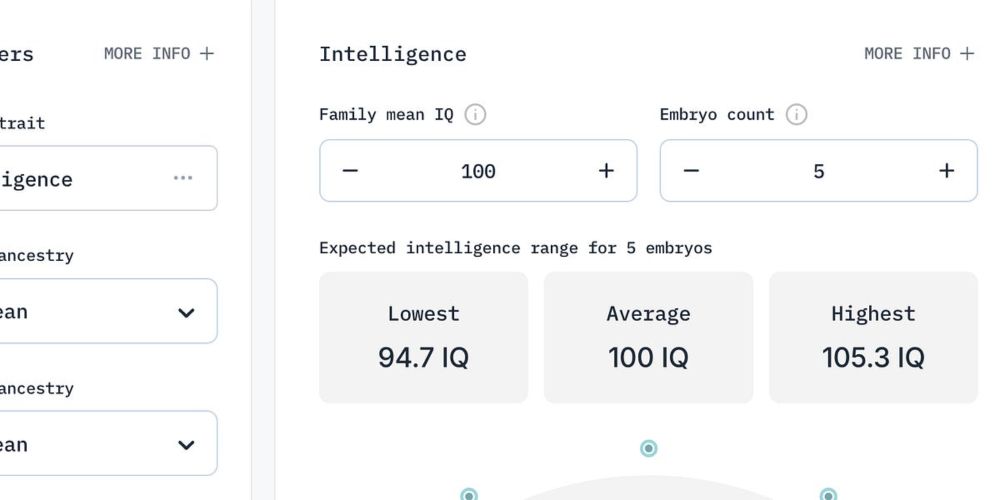
New blog post: The New Eugenics Companies
(Oops, I meant to say generational health and embryo selection)
@dirkpelt.bsky.social
Assistant Professor at Biological Psychology, VU Amsterdam. individual differences, wellbeing, personality, social desirability, psychometrics, behavior genetics

New blog post: The New Eugenics Companies
(Oops, I meant to say generational health and embryo selection)
Gefeliciteerd! En welcome back :)
23.07.2025 20:18 — 👍 1 🔁 0 💬 1 📌 0How did I not know this banger?
15.07.2025 07:11 — 👍 0 🔁 0 💬 0 📌 0For the love of god put the sample size in the abstract
15.07.2025 00:20 — 👍 181 🔁 29 💬 13 📌 2We have a new preprint: this work is especially dear to my heart, as it results from the data collection pipeline we established at the Netherlands Twin Register, which enabled us to collect Facebook posts and likes (paid for with plenty of blood, sweat, and tears...)
osf.io/preprints/ps...
So cool! Congrats to the whole team!
20.05.2025 20:58 — 👍 6 🔁 0 💬 1 📌 0
Nevermind, got it! :)
journals.plos.org/plosone/arti...
Also tagging @dmcneish.bsky.social (it's driving me nuts that I can't find it..)
09.01.2025 09:36 — 👍 0 🔁 0 💬 1 📌 0Kind of like when you have create a single indicator factor in a SEM model and fixing the residual variance of the indicator according to the (un)reliability. @michelnivard.bsky.social @dingdingpeng.the100.ci
09.01.2025 09:08 — 👍 0 🔁 0 💬 2 📌 0Help! I recently came across a paper on regression in a structural equation modeling framework where the authors argued that results should be contextualized by assuming different levels of (un)reliability of the variables (or something along those lines). Now I can't find it anymore! Anyone?
09.01.2025 09:08 — 👍 1 🔁 0 💬 1 📌 0
NTR BioPsy is now active on BlueSky! Follow us for updates on scientific output from the Netherlands Twin Register and VU Biological Psychology department.
Also follow us on LinkedIn: www.linkedin.com/company/nede...
Broei!
30.10.2024 12:27 — 👍 0 🔁 0 💬 0 📌 0Yes, something along those lines! Plus, what about scaling issues: those with very low baseline (between person) values simply have less wiggle room to vary downwardly. For traits that are correlated at the between person level, this induces correlations between within-person fluctuations then, no?
28.10.2024 17:16 — 👍 2 🔁 0 💬 1 📌 0Very interesting! After reading this and your life satisfaction paper, I've been wondering how much of the variation we find is simply regression to the mean at the person level. Do you know any papers that systematically investigate/simulate this?
28.10.2024 16:59 — 👍 2 🔁 1 💬 1 📌 0Thanks for the honor @behaviorgenetic.bsky.social !
18.10.2024 11:11 — 👍 4 🔁 0 💬 0 📌 0This is neat! I am curious how much this approach differs from the work by Rosseel et al on factor score regression eg.
psycnet.apa.org/record/2023-...
journals.sagepub.com/doi/full/10....
Ai, goeie timing idd
02.03.2024 09:50 — 👍 0 🔁 0 💬 0 📌 0Heb hetzelfde, ik moet naar de IT desk maandag..
02.03.2024 08:37 — 👍 0 🔁 0 💬 1 📌 0Neat study! I have seen the same in our work, these individual slopes correlate with very little. I am wondering the extent to which these slopes simply indicate regression to the mean...
24.11.2023 09:37 — 👍 1 🔁 0 💬 0 📌 0